Leaked power files have done nobody any good, says Froome
Sky rider retains lead on day two in Pyrenees
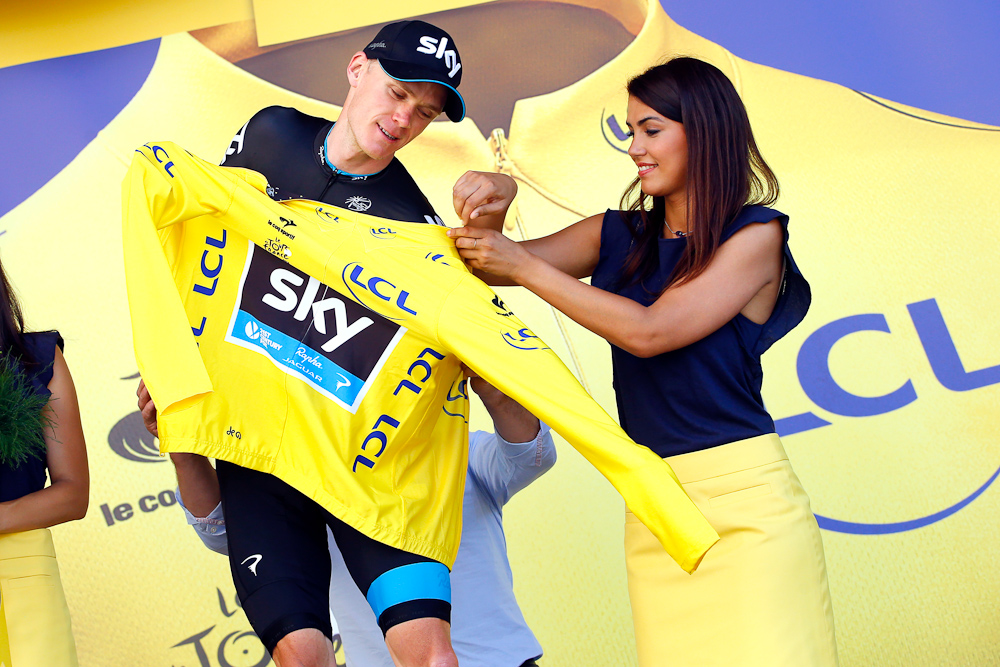
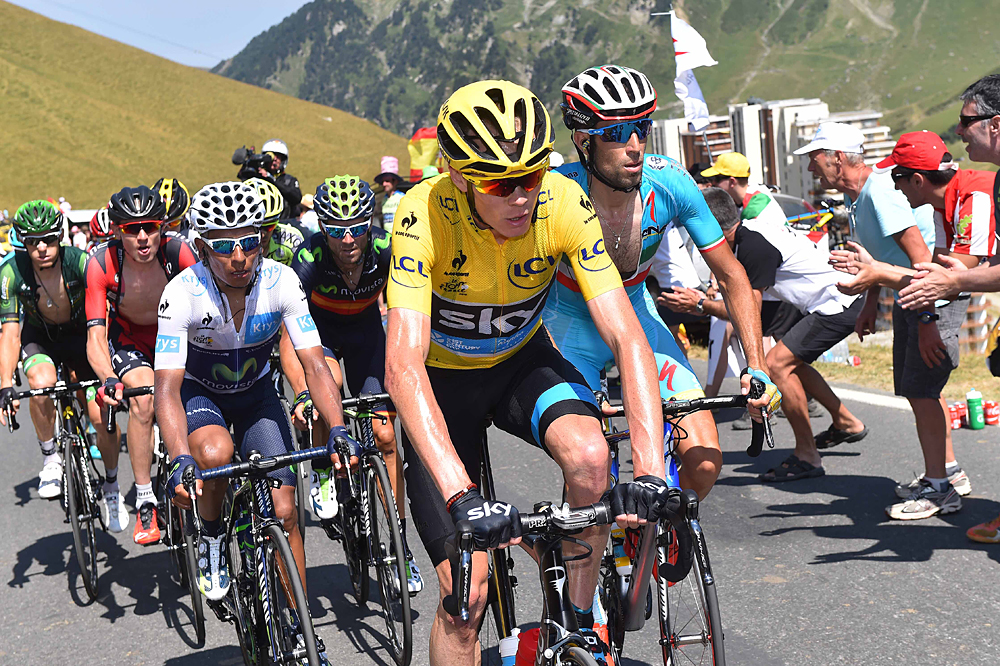
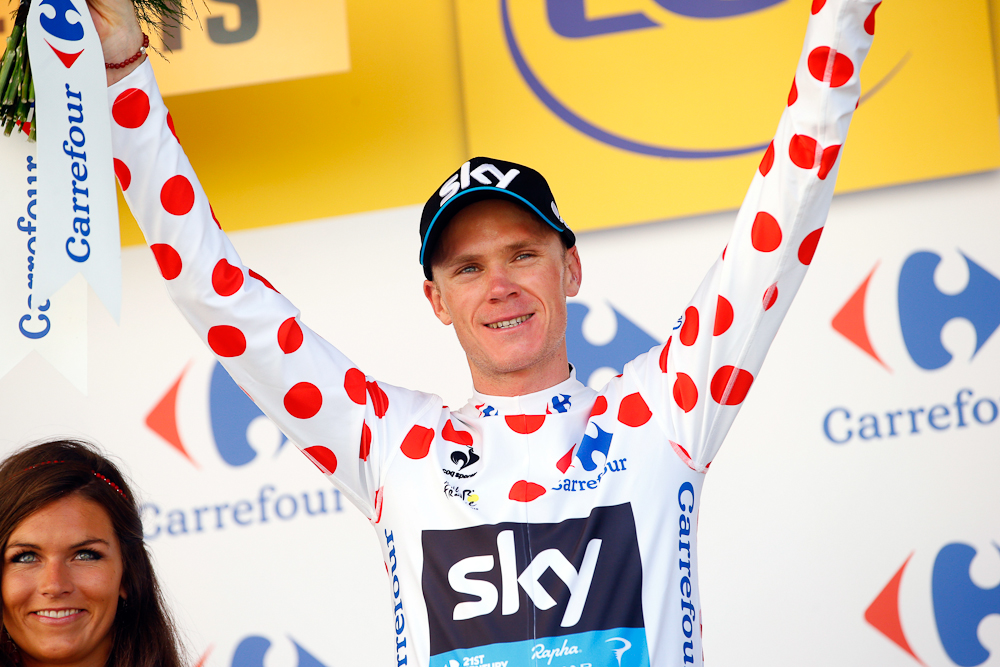
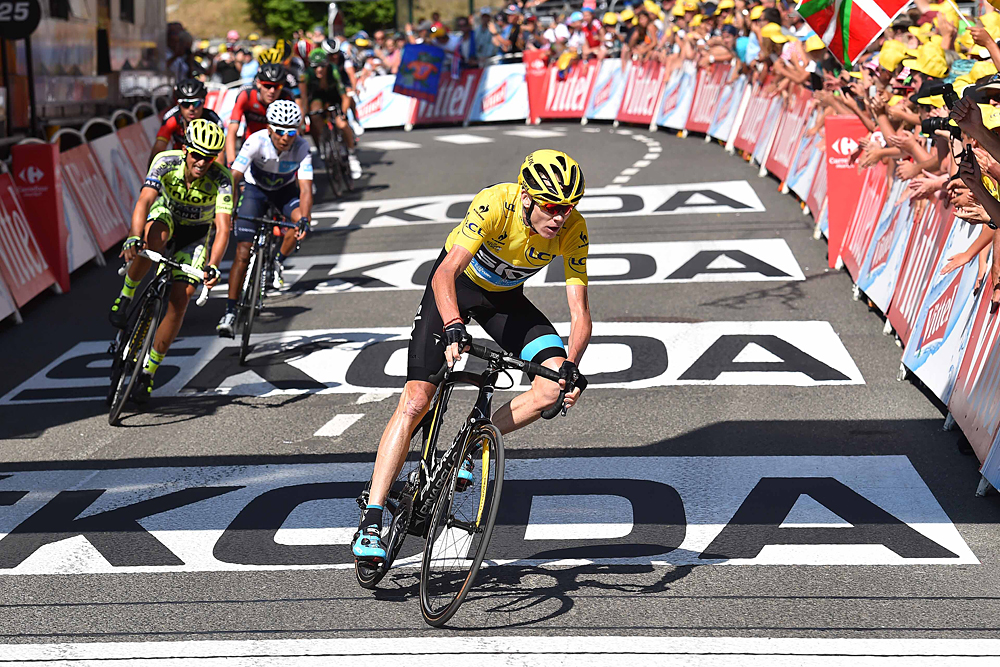
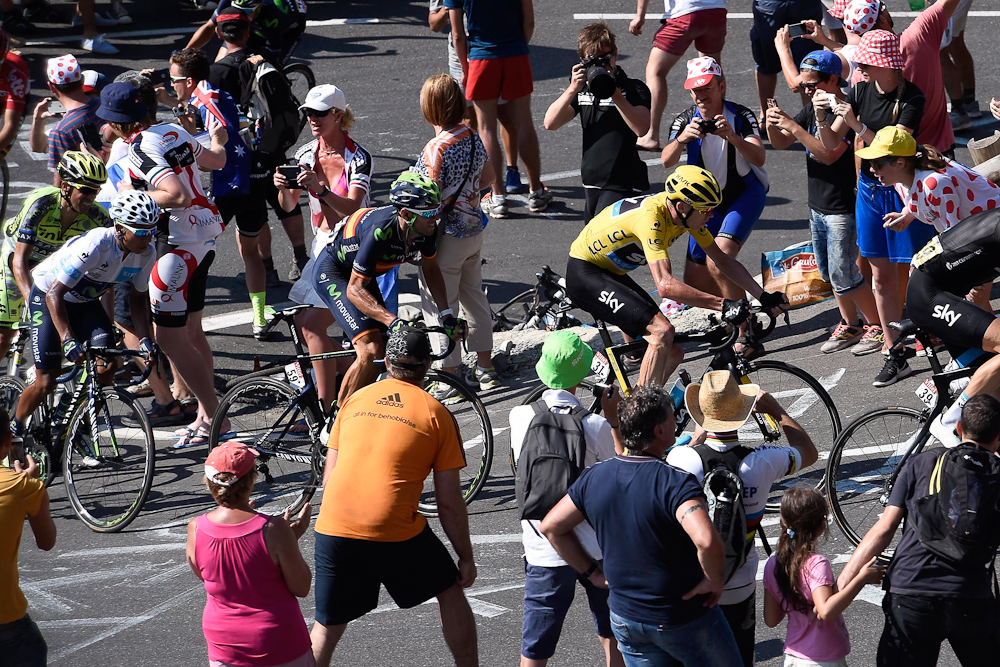
Stage 11 of the Tour de France saw the peloton tackle the Col d’Aspin and the mighty Col du Tourmalet, but at times on Wednesday, it felt as though the highest point of the race so far had been dwarfed by Mont Ventoux and La Farrapona.
Tour de France podcast episode 12: The Froome-inator
Report: Froome to undergo independent testing to try to prove he's clean
Tour de France: Majka goes on solo romp to win in Cauterets
Lance Armstrong: Tour de France doping questions about Froome are ‘my fault’
Team Sky faces scrutiny for employing former US Postal soigneur
Tour de France: Froome hits back at doubts and innuendo
Will independent testing work for Chris Froome?
LeMond: Froome 'within the realm of human performance' at Tour de France
A day on from establishing a seemingly unassailable lead atop the overall standings on La Pierre-Saint-Martin, Chris Froome (Sky) was relatively untroubled on the road from Pau to Cauterets. The afternoon’s most probing questions were to come in his post-stage press conference.
On Wednesday morning, some British newspapers who had been privately briefed by Team Sky published stories reporting that Froome would be willing to undergo additional, independent physiological testing in a bid to prove that he is competing clean.
The pledge followed former Festina trainer Antoine Vayer’s publication of Froome’s leaked power data from his 2013 victory on Mont Ventoux – and pre-empted the uploading of a follow-up video on Wednesday afternoon which claimed to show Froome’s power data from his second place finish at La Farrapona at last year’s Vuelta a España.
The Times reported that Froome was willing to submit to such testing between now and the Vuelta a España in late August, though the yellow jersey was non-committal in the extreme when asked to discuss the matter during his press conference in Cauterets on Wednesday evening.
“Right here at the moment my focus is on the race. I’m open-minded to potentially doing some physiological testing at some point after the Tour or at whatever point suits,” Froome said. “There would be some interesting things to come out of it and maybe as a team we’d even learn something from it. At the moment, I’m focused on the race. I certainly don’t have plans of just releasing data out into the public.
“You can see the effects of the supposed leaked file that went out there, that’s done nobody any good. It doesn’t prove one thing or another thing. If we find an independent expert in the field who can analyse the data from a physiological point of view, then yeah, sure, I would be quite open-minded to doing that with someone.”
The latest race content, interviews, features, reviews and expert buying guides, direct to your inbox!
At times during the press conference it was difficult to tell if it was 2013 or 2015. There was an air of déjà vu about both the questions and the answers. Froome’s stance on additional testing, for instance, echoed that of his manager Dave Brailsford during a rest day press conference at La Baule during the 2013 Tour. “There's been a lot of debate about whether we should release power data and SRM data, but there's also a question of interpretation,” Brailsford had said then.
Froome was later asked if his power data from this Tour was comparable to that from his victory on Mont Ventoux two years ago. Although he appeared to gaze at his power-meter intently during that famous attack at Chalet Reynard in 2013, Froome claimed that he had never taken the time to analyse the data after the race.
“You won’t believe this, but I haven’t actually seen that file from Ventoux so I can’t compare where I am now. I don’t even go in and look at my files from during the race,” Froome said. “That’s not something I do. That’s something our performance staff and our coaches do after the race but I’m focused on my race, on my rivals, on my teammates and how things are out on the road. Those numbers are not something I obsess about during the race.”
The leaked data from Froome’s ascent of the Ventoux also shows a markedly low maximum heart rate, which never rises above 161 beats per minute even when launching the vicious attacks that saw off both Alberto Contador and Nairo Quintana approaching the summit.
“I’ve even put that part of the data out there in my book: my maximum heart rate is only around 170 so after two weeks of a grand tour, I’m quite surprised it went to 160 if that’s what they’re saying,” Froome said. “That’s normal, once I get two weeks into a Grand Tour: 10 beats off my maximum when I’m going as hard as I can. That’s pretty normal – for me, anyway.”
Demoralised
On the bike, too, the Tour’s second day in the Pyrenees threatened to become a repeat of the corresponding stage in 2013, when Froome was left isolated after his Sky team floundered in the face of repeated attacks after kilometre zero. The same rapid start repeated itself this time out, but Froome’s teammates proved more robust and once the break of the day forged clear, the race settled down considerably.
“I’ve got to say the first two hours were brutal today,” Froome said. “That was really exciting racing. Everyone was attacking, everyone was on the limit. That’s where I have to say my teammates rode fantastically today. They kept a hold on a race that could have gone out of control very easily.”
The mighty Tourmalet was the centrepiece of the stage but Froome faced no real attacks on his maillot jaune, just an almost symbolic piece of pressing from Vincenzo Nibali’s Astana teammates. Quintana, Contador et al kept their powder dry, while Nibali himself was dropped on the final kick up to Cauterets. In the overall standings, Froome remains 2:52 ahead of Tejay van Garderen (BMC) and 3:09 up on Quintana.
“They’re certainly not demoralised,” Froome said of his – already distant – rivals on the eve of the tough summit finish at Plateau de Beille. “Vincenzo had a very tough stage yesterday but he put his teammates on the front on the Tourmalet and made it hard, even though he ended up losing more time today. But this race isn’t over. It’s a long way from being over. I can expect everyday somebody trying to make it difficult and get the time back.”

Barry Ryan was Head of Features at Cyclingnews. He has covered professional cycling since 2010, reporting from the Tour de France, Giro d’Italia and events from Argentina to Japan. His writing has appeared in The Independent, Procycling and Cycling Plus. He is the author of The Ascent: Sean Kelly, Stephen Roche and the Rise of Irish Cycling’s Golden Generation, published by Gill Books.